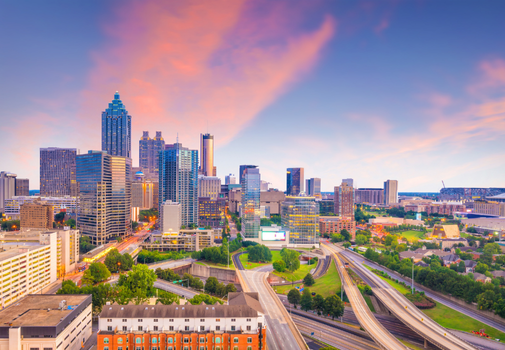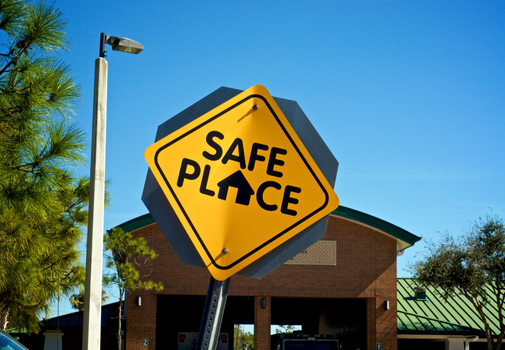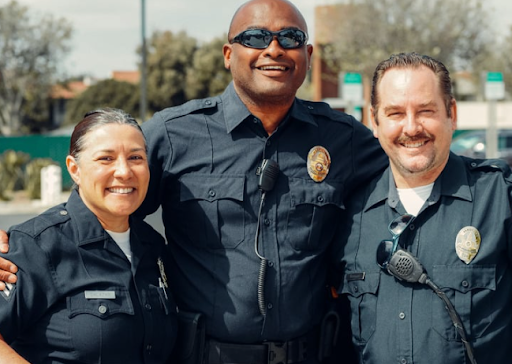What Are The Safest Cities In Georgia

Georgia is known for its southern hospitality, booming suburbs, and scenic charm. From the Blue Ridge Mountains to the coastline, it offers a unique blend of bustling metro areas and peaceful small towns. But for families, retirees, and individuals relocating to the Peach State, one question always comes first: Where are the safest places to live in Georgia?
In this comprehensive guide, we’ll explore the top 10 safest cities in Georgia, based on publicly available data from trusted sources. We’ll also discuss what makes a city “safe,” how to evaluate safety before moving, and what to do if an accident or incident occurs, even in a city with a low crime rate.
Top 10 Safest Cities In Georgia
Below are ten of the safest cities across Georgia, each evaluated for crime rates, community safety features, and overall livability.
1. Holly Springs
- County: Cherokee County
- Population: ~17,000
- Why It’s Safe: Holly Springs consistently ranks as one of the safest cities in Georgia. With extremely low violent crime rates and a strong police presence, the city is family-friendly and community-oriented.
- Best For: Young families and commuters to Atlanta
- Legal Note: Slip and fall injuries or vehicle accidents may still occur in retail spaces and public parks. Residents can consult a personal injury lawyer at Seay Felton if negligence is suspected.
2. Milton
- County: Fulton County
- Population: ~40,000
- Why It’s Safe: Milton combines rural tranquility with affluence and strong civic engagement. The city enforces high zoning standards, making it a low-risk area for crime.
- Best For: Professionals, retirees, and families
- Legal Note: Despite low crime, negligent property maintenance in upscale neighborhoods can still lead to injury. Victims can contact Seay Felton Trial Lawyers to explore their rights.
3. Johns Creek
- County: Fulton County
- Population: ~80,000
- Why It’s Safe: This suburb has top-tier schools, well-lit neighborhoods, and active local policing. Johns Creek’s strong sense of community reduces both violent and non-violent crime.
- Best For: High-income households, tech professionals
- Legal Note: If you experience a personal injury at a business or HOA-controlled property, Georgia premises liability laws still apply.
4. Peachtree City
- County: Fayette County
- Population: ~39,000
- Why It’s Safe: Known for its golf cart paths and laid-back vibe, Peachtree City has one of Georgia’s lowest crime rates. The city has won awards for safety and livability.
- Best For: Retirees, families, remote workers
- Legal Note: Accidents involving golf carts or shared-use paths can involve complex liability issues — legal representation may be necessary.
5. Grovetown
- County: Columbia County
- Population: ~17,000
- Why It’s Safe: Grovetown benefits from its proximity to Fort Gordon, contributing to a strong sense of order and public service. The city has a proactive police department and community outreach programs.
- Best For: Military families, first-time homebuyers
- Legal Note: Military towns still face dangers like property hazards in rental housing — legal help may be needed for tenant injury claims.
6. Senoia
- County: Coweta County
- Population: ~5,000
- Why It’s Safe: A small, close-knit town made famous by “The Walking Dead,” Senoia offers safe streets and nearly non-existent violent crime. It's a top destination for those seeking rural charm with modern amenities.
- Best For: Retirees, creatives, small families
- Legal Note: Even in low-crime areas, a business that fails to maintain safe premises can still be held liable for injuries.
7. Tyrone
- County: Fayette County
- Population: ~7,500
- Why It’s Safe: Tyrone’s police force and engaged town council have kept crime remarkably low for years. The town is quiet, with minimal through-traffic and excellent infrastructure.
- Best For: Suburban families, remote professionals
- Legal Note: Injuries in grocery stores, sidewalks, or public spaces fall under Georgia's personal injury law — Seay Felton can help evaluate fault and liability.
8. Fayetteville
- County: Fayette County
- Population: ~18,000
- Why It’s Safe: With an emphasis on planned communities and business development, Fayetteville has invested heavily in safety. It balances suburban life with low crime and strong community policing.
- Best For: Young professionals, empty nesters
- Legal Note: If an accident happens on a poorly managed commercial property, don’t assume safety stats negate responsibility — speak with a Georgia personal injury attorney.
9. Woodstock
- County: Cherokee County
- Population: ~35,000
- Why It’s Safe: With low violent crime and high walkability scores, Woodstock has become one of the best small cities in metro Atlanta. It features numerous parks, trails, and community events.
- Best For: Outdoor lovers, young couples
- Legal Note: As walkability increases, so do pedestrian injury risks, especially if sidewalks are poorly maintained or businesses lack safety signage.
10. Kingsland
- County: Camden County
- Population: ~18,000
- Why It’s Safe: Located near the Florida border, Kingsland has low crime and a strong emphasis on family values. The local police force is community-oriented and highly responsive.
- Best For: Families, seasonal residents, and retirees
- Legal Note: Tourists and newcomers may be unaware of local hazards. If injured while visiting, you still have legal rights to pursue compensation under Georgia law.
Honorable Mentions
Dunwoody
- County: DeKalb County
- Population: ~51,000
- Why It’s Safe: Dunwoody has low violent crime rates, active neighborhood patrols, and well-lit residential areas. The city also offers quick access to emergency services.
- Best For: Professionals, families, and commuters
- Legal Note: Even in well-patrolled areas, residents may face risks from slip-and-fall injuries in shopping centers or traffic accidents on busy roads.
Alpharetta
- County: Fulton County
- Population: ~66,000
- Why It’s Safe: Alpharetta’s strong police presence, pedestrian-friendly design, and community events help keep crime low.
- Best For: Young professionals, tech workers, and families
- Legal Note: Injuries during events or in busy business districts may still require personal injury legal guidance.
Blairsville
- County: Union County
- Why It’s Safe: Blairsville is a peaceful mountain town in North Georgia known for its scenic views, low crime rates, and tight-knit community. Its smaller population and active local police force help keep both violent and property crime low year-round.
- Best For: Retirees, outdoor enthusiasts, and remote workers
- Legal Note: Outdoor spaces and seasonal tourism can sometimes lead to slips, falls, or other accidents. Residents and visitors should know that even rural property owners are responsible for safe conditions.
Flowery Branch
- County: Hall County
- Population: ~10,000
- Why It’s Safe: With low population density, strong local policing, and tight community ties, Flowery Branch remains a secure small town.
- Best For: Small families, retirees, and nature lovers
- Legal Note: Accidents in parks or near public walkways may fall under Georgia’s premises liability laws.
Richmond Hill
- County: Bryan County
- Population: ~17,000
- Why It’s Safe: Richmond Hill supports law enforcement, has low property crime, and invests in community safety initiatives.
- Best For: Military families, remote workers, and parents with school-aged children
- Legal Note: Injuries on private property or in rental housing may still lead to valid personal injury claims.
Ball Ground
- County: Cherokee County
- Why It’s Safe: With a small population and a very low crime rate, Ball Ground offers a quiet, rural lifestyle with a strong sense of community.
- Best For: Retirees and those seeking small-town peace
- Legal Note: While peaceful, accidents can still happen at local businesses or on public property.
Dacula
- County: Gwinnett County
- Why It’s Safe: Dacula benefits from suburban infrastructure, solid schools, and active local policing that keeps crime rates consistently low.
- Best For: Families and commuters to Metro Atlanta
- Legal Note: If you experience an injury due to negligent maintenance or local road issues, legal recourse may still be necessary.
Pooler
- County: Chatham County
- Why It’s Safe: Located just outside Savannah, Pooler has experienced fast development while keeping safety a priority through community programs and responsive policing.
- Best For: Young families and professionals working near Savannah
- Legal Note: New developments may still carry risks like construction hazards or poorly managed property. Legal consultation is recommended if you’re injured.
What Makes a City Safe?

A safe city isn’t just about low crime — it’s about quality of life, community investment, and infrastructure that prevents danger. The cities included in this list rank highly for:
- Low violent crime rates (assault, homicide, robbery)
- Low property crime rates (burglary, theft, motor vehicle theft)
- Responsive local law enforcement
- Strong community involvement
- Well-maintained roads and public spaces
Additionally, cities with low unemployment rates, good school systems, and access to healthcare tend to experience fewer preventable incidents. But even in these cities, personal injury incidents like slips and falls, car accidents, or negligent security claims can happen, which is where knowing your legal rights becomes essential.
How to Evaluate Safety Before Moving?
Before you choose your next home, take these steps to assess neighborhood safety:
- Review online crime maps — Use tools like CrimeMapping.com, AreaVibes, or local police websites.
- Research emergency services — How close are hospitals, fire stations, and police precincts?
- Walk the neighborhood — Visit during daytime and nighttime hours to gauge lighting and traffic.
- Speak to locals — Ask about recent crime, community watch programs, or noise issues.
- Look for warning signs — Unlit streets, broken fences, and empty lots may signal poor safety enforcement.
Even in a statistically “safe” city, one negligent landlord, business owner, or property manager can create danger. That’s why knowing your rights — and having access to legal help — is essential.
Additional Safety Insights for Georgia Cities

Even in the safest cities across Georgia, a deeper look at the factors behind those rankings can help residents stay vigilant and informed. Below are three important perspectives to consider:
1. The Role of Infrastructure in City Safety
- Well-lit streets help deter criminal activity and improve nighttime visibility.
- Maintained sidewalks and clear crosswalks reduce the risk of pedestrian falls or accidents.
- Traffic signs and signals that are up-to-date and highly visible help prevent collisions.
- Close proximity to hospitals, fire departments, and police stations improves emergency response time.
- Cities like Alpharetta and Dunwoody benefit from strong infrastructure that supports daily safety.
2. How Georgia's Safest Cities Encourage Community Involvement
- Neighborhood watch programs and active HOAs(Homeowners Associations) create accountability and a sense of community.
- Events like school safety fairs and town halls keep residents informed and engaged.
- Volunteers often support local safety efforts, from reporting issues to organizing patrols.
- In cities such as Peachtree City and Woodstock, community involvement is a driving force behind low crime rates.
3. What Makes a “Safe” City Still Legally Risky?
- Businesses may maintain good security but still overlook hazards like broken stairs or wet floors.
- Quiet neighborhoods can have hidden risks like uneven sidewalks or poorly maintained rental properties.
- Even in cities like Milton or Johns Creek, accidents due to negligence can happen at any time.
- Under Georgia law, property owners can be held liable for injuries caused by unsafe conditions.
- Seay Felton Lawyers can help residents understand their rights and seek justice if injured, regardless of how "safe" their city may seem.
How to Evaluate Safety Before Moving?
Before you choose your next home, take these steps to assess neighborhood safety:
- Review online crime maps — Use tools like CrimeMapping.com, AreaVibes, or local police websites.
- Research emergency services — How close are hospitals, fire stations, and police precincts?
- Walk the neighborhood — Visit during daytime and nighttime hours to gauge lighting and traffic.
- Speak to locals — Ask about recent crime, community watch programs, or noise issues.
- Look for warning signs — Unlit streets, broken fences, and empty lots may signal poor safety enforcement.
Even in a statistically “safe” city, one negligent landlord, business owner, or property manager can create danger. That’s why knowing your rights — and having access to legal help — is essential.
What to Do If You’re Injured in a “Safe” City?
Safety rankings are helpful, but they’re not a guarantee. Injuries can happen in any city due to:
- Unsafe store floors (slip and fall)
- Unsecured apartment entrances (negligent security)
- Distracted drivers
- Poorly maintained sidewalks
If you’re injured:
- Get medical attention immediately
- Document the scene with photos and notes
- Collect contact information from witnesses
- Avoid giving detailed statements to property owners or insurers
- Speak with a personal injury lawyer at Seay Felton Trial Lawyers
A safe city may reduce your risk, but when harm does occur, it’s important to hold the responsible party accountable.
Seay Felton Trial Lawyers: Protecting Georgians in Every City
With offices in Atlanta and Macon, Seay Felton Trial Lawyers serve clients across Georgia, including those in the safest cities. Our attorneys have years of experience handling:
- Personal injury claims
- Premises liability cases
- Car accident lawsuits
- Negligent security litigation
We believe everyone deserves a safe environment, and when safety fails due to negligence, we step in to help. Whether you live in Holly Springs or Johns Creek, our team is ready to provide the legal support you need.
Living Smart in Georgia’s Safest Cities
Georgia offers countless beautiful, family-friendly, and secure places to live. But safety isn’t just about statistics — it’s about vigilance, awareness, and being prepared. Whether you’re looking for a new place to call home or simply want peace of mind where you live, take time to understand your surroundings and your legal rights.
And remember: If you’re ever harmed due to someone else’s negligence — no matter where it happens — you don’t have to handle it alone.
Need legal guidance after an accident in Georgia? Contact Seay Felton Trial Lawyers today and let us fight for the justice you deserve.
Disclaimer: Crime statistics and safety scores referenced in this blog are based on third-party sources. These figures may not reflect real-time data, and no city is 100% crime-free.
Frequently Asked Questions
Crime rates are typically calculated per 100,000 residents and are based on reported incidents to local and state law enforcement. These include both violent crimes (like assault and robbery) and property crimes (like theft and burglary), and are often compiled annually by the FBI and state agencies.
Yes, in many cases. Smaller towns often have fewer people, less traffic, and stronger community ties. However, safety still depends on factors like local leadership, policing, and economic conditions, and not just population size.
Cities with top-rated schools tend to also have lower crime rates. Strong school systems usually reflect community investment, good infrastructure, and a focus on long-term livability, all of which contribute to safer environments.
Absolutely. Georgia tenants are protected under state law and can pursue legal action if landlords fail to maintain safe and livable conditions, such as fixing broken locks, stairways, or mold issues.
Yes. Some areas may feel unsafe due to lighting, vacant lots, or a lack of community engagement, even if the actual crime rate is low. Others may appear polished but have hidden issues like high property crime rates or underreported incidents.
Many of Georgia’s safest cities also invest in disaster readiness, offering public information systems, evacuation plans, and shelters. This adds another layer of protection for residents during storms, floods, or other emergencies.
A significant one. Proactive mayors, police chiefs, and city councils influence everything from budget allocation for public safety to community engagement strategies. Cities with responsive leadership often see better outcomes in both safety and resident satisfaction.

